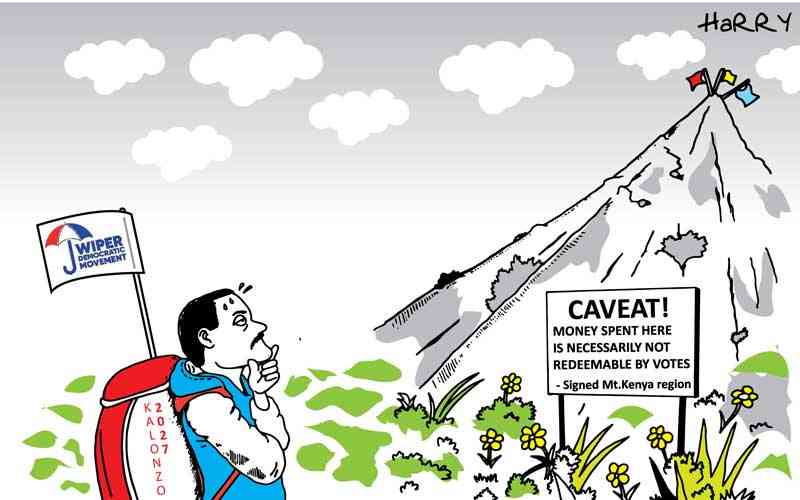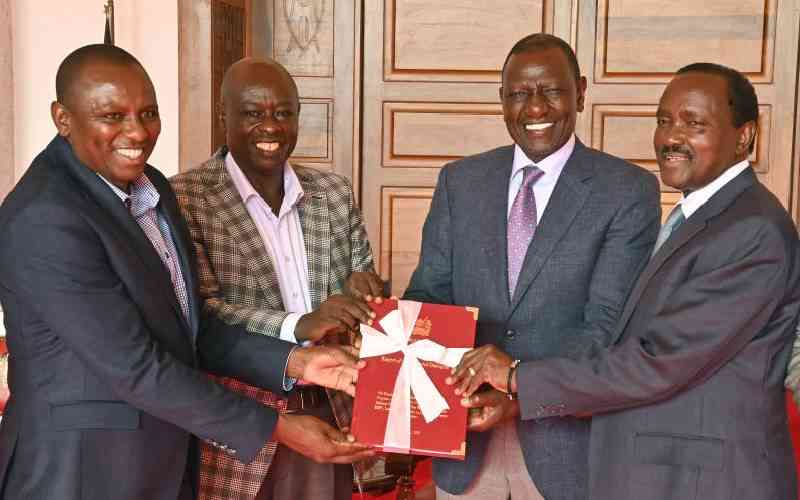One of the most amazing things about Kenyans is just how open minded we are on most issues, willing to consider diverse opinions and try a variety of possibilities.
Until it comes to our politics. Then we turn irrational, hypocritical and self-righteous, holding positions that only make sense to the crowds we interact with in closed WhatsApp groups.
Nothing makes this more obvious than the current conundrum about the elections. Even respected professionals traverse from one religiously held view to the opposite view when circumstances change, without an iota of shame. I have said in this column and I will repeat myself. We can argue ourselves blue pretending that what is in issue is a “free fair and credible” election but we all know no election can resolve the underlying questions informing our positions.
Let us first disabuse ourselves of the naïve notion that politicians are committed to free polls as a principle. Having been in politics for the last 20 years, I have only met a handful of politicians who would not exploit an opportunity to rig an election. And many of these never made it in politics.
So when the average politician complains about rigged polls, the complaint is about absence of opportunity, not a commitment to constitutional principle. The people to whom free and fair polls should matter is us citizens. Assuming that for us this is truly about ensuring a free and fair poll, nothing should be easier than investing in ensuring credible polls with absolute certainty.
Kenya still undertakes a fairly simple and open electoral process which is amazingly easy to monitor and verify. Other than biometric registration and voter identification, which so far have worked error free, elections in Kenya are largely manual. We vote manually, we openly count votes manually in the dingy classrooms where we voted and fill Forms 34 manually.
You therefore only need to invest in 40,800 properly trained and reasonably objective Kenyans to sit in the 40,800 classrooms and observe the counting of votes. They can take snap shots of the Forms 34A immediately after the count and even record the proceedings of the count and announcement and use this to verify IEBC results.
By 3am on election night, we would know the results separate from IEBC, and politicians. A public portal managed by a non-political public spirited coalition can actually be opened where this information can be uploaded and accessed.
What stops civil society, religious groups, private sector, trade unions from this simple process that requires minimal investment for the good of Kenya? I am sure our ever-concerned donor coalition would be more than willing to fund such a process. I wish this had been the conversation among citizens immediately a fresh poll was ordered instead of the constant parroting of politician’s views touting the same as objectivity.
As for our ever-ebullient media, nothing would be easier than to station the press, at the very minimum, in the 290 constituency tally centres to live record the vote tally and announcement of these results which are in any event final.
Instead, we pick the cue from our politicians and spend our energies arguing about electronic transmission, algorithms and even amending laws to resolve the most basic of issues.
Every evening we tune into all manner of partisan views whose only effect is either to entertain or ignite passions. We pretend that the most basic of electoral processes is a complex issue that requires the most learned among us to understand and monitor.
It makes me believe that deep down, we are not really committed to credible elections unless we respond to our base designs. We are so caught up with the political narrative that we are willing to even suggest suspending the same constitution that we tout as “the most progressive in the world” to respond to our politicians narrative instead of designing solutions that will enable us get an election that reflects our reality so that we can move to the next agenda; settling outstanding constitutional and governance issues.
Who will rescue us from ourselves?
The writer is an advocate of the High Court of Kenya
Stay informed. Subscribe to our newsletter
 The Standard Group Plc is a
multi-media organization with investments in media platforms spanning newspaper
print operations, television, radio broadcasting, digital and online services. The
Standard Group is recognized as a leading multi-media house in Kenya with a key
influence in matters of national and international interest.
The Standard Group Plc is a
multi-media organization with investments in media platforms spanning newspaper
print operations, television, radio broadcasting, digital and online services. The
Standard Group is recognized as a leading multi-media house in Kenya with a key
influence in matters of national and international interest.
 The Standard Group Plc is a
multi-media organization with investments in media platforms spanning newspaper
print operations, television, radio broadcasting, digital and online services. The
Standard Group is recognized as a leading multi-media house in Kenya with a key
influence in matters of national and international interest.
The Standard Group Plc is a
multi-media organization with investments in media platforms spanning newspaper
print operations, television, radio broadcasting, digital and online services. The
Standard Group is recognized as a leading multi-media house in Kenya with a key
influence in matters of national and international interest.







